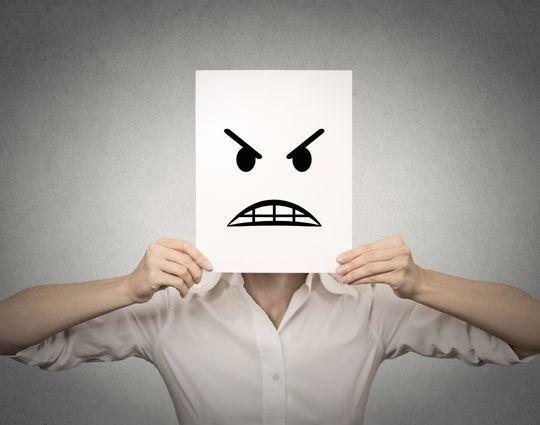Immediate Availability - Open 7 days a week - day, evening and weekend appointments
Immediate Availability - Open 7 days a week - day, evening and weekend appointments

“Why am I angry?”
“Stop taking your anger out on me!”
You may have heard these phrases before, you may have even said them yourself. This is because we encounter ‘anger’ every day.
This suggests that anger is a common occurrence that everyone must struggle with. We do not need to struggle with anger. By learning about our anger and receiving counselling right here in Calgary we can work towards understanding and managing our anger, so that no one needs to say these phrases.
The word ‘anger’ has many connotations linked with it, most being negative.
These are just a few that might come to mind. Another one might be ‘bad’. Many people are worried that by feeling angry they are feeling a bad or negative emotion. This may even make them a bad person.
This is simply not true. Anger is a prime emotion, along with fear, sadness, and joy. Feeling anger is a normal experience.
We feel angry when we experience something that causes us pain, this could be physical or emotional pain. Anger is a defense mechanism to protect us from this pain. Anger is the reactive emotion that allows us to express how we feel about this pain.
Expressing that we do not like, appreciate, or accept the trigger is important for us to set boundaries and problem solve for future situations.
Anger can become a hindrance depending on how we express the emotion. We all feel anger, and we will express it differently. If the expression of your anger is causing you anxiety, you may wish to look at anxiety and anger counselling.
When we feel triggered, and it leads to an emotional response of anger, we may use one of the following ways to express it.
As you read through these ways think about how you usually deal with interactions that make you feel angry. Remember that this self-reflection is done without judgment, rather with a gentle curiosity to help you understand yourself better.
| Assertive Anger | Assertive anger is the healthy way of expressing anger. When you feel angry you can pause and step back. This pause helps you to recognize your trigger and decide what the best approach would be. Any interactions you have when you express assertive anger are aimed at problem solving whilst maintaining your boundaries and not crossing someone else’s. |
| Behavioral Anger | Behavioral anger is a more physical expression of anger. This can range from the stamping of feet to physical violence. This expression of anger is commonly an impulsive expression that is unpredictable. Children may exhibit this expression of anger with tantrums or outbursts. |
| Chronic Anger | Chronic anger is like a pressure cooker on low heat. You are experiencing an internal (like self-criticism) or external (a work environment) situation that is triggering you constantly. Many people do not know they experience chronic anger as the feeling of frustration is always with them. This can cause other health-related issues such as high blood pressure and ulcers. |
| Passive Aggressive Anger | Passive aggressive anger happens when you avoid expressing your anger outwardly. Rather it is expressed through more indirect means such as sarcasm or procrastination. Many people who express passive aggressive anger are not even aware that they are doing so. |
| Retaliatory Anger | Retaliatory anger is a deliberate response aimed at hurting the person or situation that has angered you. This can often happen after the fact and seem like revenge. |
| Self-Abuse Anger | Self-abuse anger is when all expressions of anger are turned within and towards yourself. Self-hatred, self-criticism, and shame are keenly felt. It is not uncommon to have eating disorders, negative self-talk, or self-harm co-exist with this expression of anger. |
| Destructive/Volatile Anger | Destructive or volatile anger is often seen as an unpredictable extreme expression of behavioral anger. This occurs when physical violence is used with intention and malice. |
| Judgmental Anger | Judgmental anger is expressed when you take the ‘moral high ground’ and feel that the person or situation has done an injustice to you, and this has caused your anger. Feelings of indignation and victimization are common with this type of anger. |
| Overwhelmed Anger | Overwhelmed anger is expressed after a long period of silent build up. When anger is avoided or buried, it builds up and leads to resentment and bitterness. When these emotions reach breaking point, the explosion can be unpredictable and aggressive. |
| Verbal Anger | Verbal anger is when you use words to express anger, and this is usually paired with an aggressive outburst. Verbal anger can take the form of shouting, intentionally criticizing, and saying hurtful things to another person. |
Becoming aware of how we habitually express anger helps us to understand why our anger may be causing us stress and anxiety.
Anxiety and anger have a common link in that we feel both when we feel threatened or triggered. We may also feel heightened states of anxiety if we are unable to appropriately express our anger. Similarly, if we have prolonged states of anxiety, we may be quick to anger-fueled outbursts.
Visiting an anxiety psychologist or anxiety therapist may be beneficial if you feel that these two emotions are working together to cause you distress.
Managing our anger can feel like an enormous task that requires complex interventions. However, what it actually involves is practice.
When we are practicing skills when we are not triggered, they become habitual and easier to use when we do find ourselves triggered. It is like deciding to go sky diving and packing your parachute whilst you are on the ground, instead of just before you need to jump out of the plane!
Being well prepared is important. Using these emotional coping strategies can help when we are feeling triggered. There are many skills or strategies that you can use.
Here are just a few:
When you can identify what makes you feel anxious or angry you can be prepared if you are going to face it. Otherwise, you can attempt to avoid situations that trigger you.
By using a relaxation technique, you give yourself a chance to pause before expressing your anger. In this pause you can choose how to express your anger. This is a good coping strategy if you find yourself using behavioral, verbal, destructive, or judgmental anger expressions.
Try to focus on using breath as your basis for relaxation. Having a longer exhale helps to calm the nervous system and your mind.
If you find that you have a lot of anxious or angry energy built up in your body, finding a physical outlet is a good idea.
This could be going for a brisk walk, going to gym, throwing a ball against a wall, or more calming physical outlets like yoga, squats, or lunges.
If you struggle with finding assertive ways to express your anger, then assertiveness training may be a good idea. This will assist you in becoming aware of the underlying reasons for your emotions and exploring positive ways to problem solve through conflict.
Counselling can also assist with exploring the link between anger and anxiety and providing anxiety treatment along with anger management tools.
You can find anxiety treatment here in Calgary!
Anger is an emotion that we all feel, and one we will always feel. It is not something for us to feel shame or discomfort about. Rather, it is an opportunity for us to learn more about how we express anger and the anxiety that is linked with it.
There are many skills that we can use to help us express our anger in a healthy and productive manner. However, sometimes our habitual patterns are deeply ingrained for a variety of reasons.
If this is true for you, you may benefit from anxiety and anger management counselling in Calgary. Contact One Life Counselling and Coaching to start your journey towards healthier anger expression!
